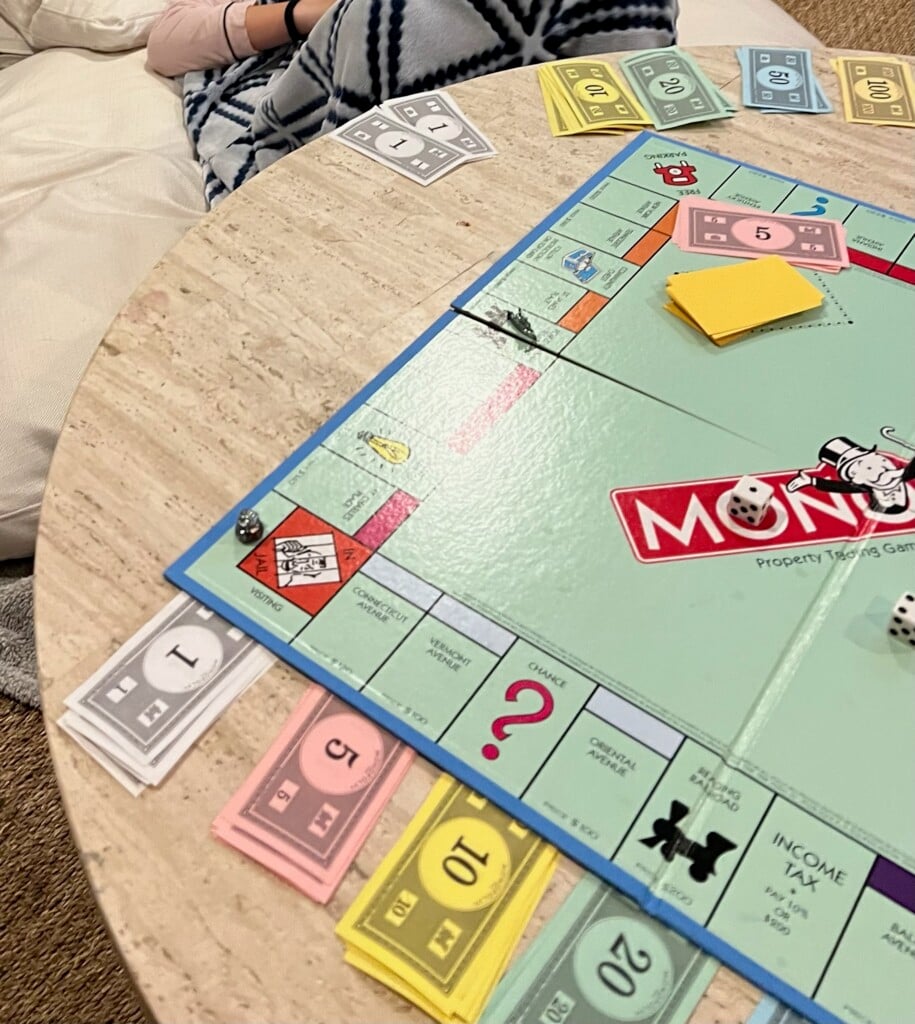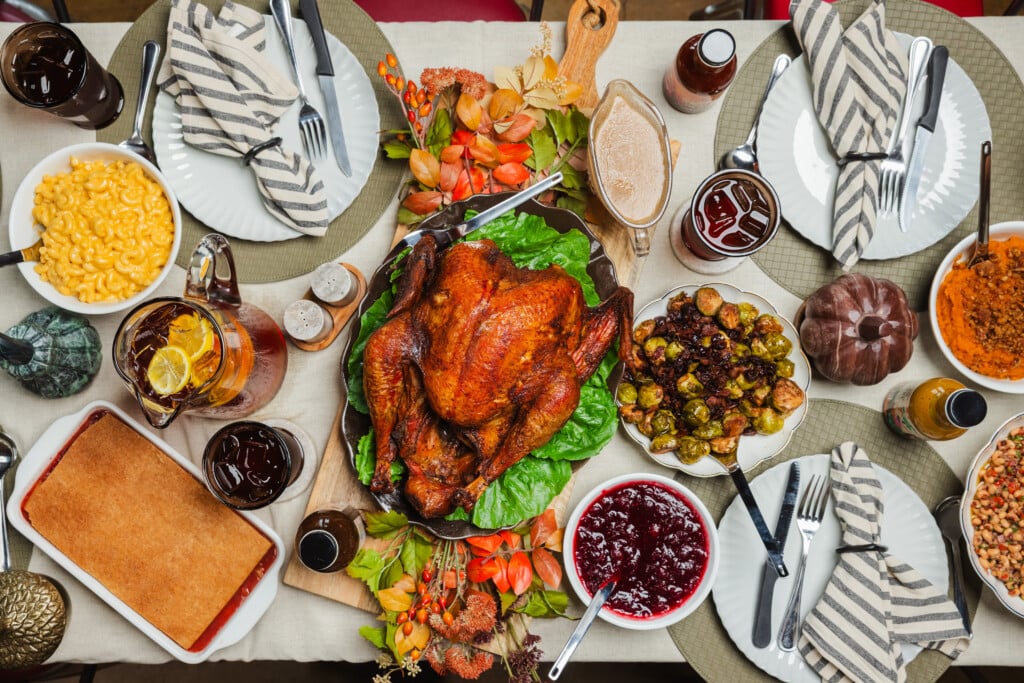ASK A MOM: screen time alternatives, budgeting, and gaming safety
WBTV's Molly Grantham tackles your parenting questions in this ongoing series

Q: What do your kids DO in evenings and weekends when screen time is used up, especially now that it’s winter? Mine are 11 and 13, and I’m the “worst mom EVER” for cutting them off after an hour. —Libby
A: Welcome to the most blah month of the year. January is so… January. Remember when January 2020 felt two months long? We complained about it until March 2020 hit and we stopped moving altogether. Then it felt like another five years just to get to May.
Yeah. That was awful.
Point being, I don’t know how to best answer your question. I asked my own kids, Parker, age 12, and Hutch, age 9. (The 3-year-old didn’t get a say.)
“When I can’t be on my screen and it’s too cold outside to play sports, I will make friendship bracelets, organize my room, or ask you to move a car out of the garage and try to practice volleyball or soccer there until it gets too cold,” says Parker, a 7th grader. “I like being in my room and listening to music and just being in there, because it’s my space.”
“Nothing,” says 3rd grader Hutch. “I only like screens.”
Both answers are accurate. She’ll play sports no matter the temperature, and he does obsess over screens. In the name of research, I pushed Hutch to continue.
“If you MAKE me turn off the TV, and I can’t go outside to jump on the trampoline, I’ll ask you what to do,” he says. “I never can think of anything. You tell me to read. I don’t like to read so I then I just try to find my sister and annoy her. Because, mom, she likes to annoy me too. We don’t really like each other.”
I will not pretty-up his quote to make me sound like a better mom raising nicer siblings. Even if I maybe should.
Because those answers don’t seem overly-helpful, I took this question to Facebook. My personal page is filled with amazing, active followers who are generally helpful and kind. I also posted the question to my Instagram stories (@molly_grantham). Roughly 24 hours after posting, 25,000 people had read or shared it; close to 200 answered. Here are a few:
Erin: “I guess I’m the worst mom ever, because I don’t limit screentime. As long as homework gets done, laundry put away, other chores, etc., I’m fine with screens.”
Crystal: “We bundle up and go outside even if it’s cold, play board games, do puzzles, draw, read books, make forts (and clean them up after), they can come help me cook, or play in their rooms. If they act like any of that is a problem, I’ll happily give them chores. They learned quickly to pick the best option without whining or complaining.”
Shaniqua: “My four grands were here Thanksgiving. I pulled out the hold Pictionary Party edition from the early 90’s. It has a dry erase board, so I picked up new markers and an eraser. Ages 5-13, plus my adult son and daughter-in-law… at Christmas they asked as soon as they arrived, ‘Can we play Pictionary again, G’ma?’”
Barbara: Do they need to clean their room? Have you taught them to do laundry? Can they help with meal prep?
Lauren: Family movies never count toward screen time. Not if you are together. Pop popcorn and gather in the same room.
Michelle: My husband and I try to figure out where we’ll go for a family vacation that year, then get a jigsaw puzzle that has to do with the location and set it up in January. So if a beach trip, a beach-type puzzle. Our girls work on it for months and it gets them excited about summer plans.
Kathy: Clean out a bedroom closet and make a donation, learn a new dance, rearrange the living room, read a book, visit a neighbor, tell stories, color, read.
Julie: Teach them life skills like baking a cake or using the washer and dryer. Or, even watching YouTube videos with them on how to change a tire. Show them how chores are a part of life, but can be a fun challenge.
Q: What’s the best way to help my 16-year-old daughter budget for gas money? Is there an app for her to manage her own account? (And should we make her an authorized user on our credit card for emergencies?) —Name Withheld
A: There are tons of new apps out there that help teach about savings and finance. I took your question to two friends who passed it around to other experts in the financial field.
The first is Meghan Oldis, a CPA with Bragg Financial.
“A first step is for your daughter to determine how much she is driving,” she says. “How many miles on average, a day? She can then multiply this by the number of days per month. Next step is for her to understand how many miles she can get per gallon as that impacts how much she needs to budget. Many cars do this calculation for you these days! From there, she can take the total miles driven per month, and divide it by the miles per gallon her car can get, and multiply this by the price per gallon for gas.”
Meghan says this is just a starting point, and though it sounds complicated, it’ll help her understand the concept… not just be given information like magic on an app. It’ll also give her 16-year-old a goal to aim for each month. Having her track her spending on gas and seeing if it’s over or under the original number will teach her how to adjust her budget.
As for what good apps are out there?
“The best resource may be the banking app for where the family banks,” Meghan says. “Many banks have built out robust budgeting apps. Your debit and credit cards associated with the bank will be linked and you can typically add outside accounts to aggregate them in one place. The app will categorize the purchases so you can see on a weekly, monthly, and yearly basis your highest spending category.”
Meghan says you can also try money tracker apps like NerdWallet or PocketGuard.
As for making teens an authorized user on a credit card for emergencies, Meghan says she gets mixed reviews from clients.
“It’s very dependent upon the child,” she says. “If the issuing creditor reports authorized users to the credit bureaus, this could help the teen start to build their credit. However, if the child is late with payments, it could impact the parent’s credit score. So, proceed with caution!”
Meghan gave two links on her company’s site you might find helpful: Who needs a credit card and general information.
The second expert works at Bank of America and says the BofA site is a great tool, including this article about better money habits.
“It’s a great resource for students in learning how to manage daily finances and establishing goals,” he says. “It walks you though how to calculate your net income, which is the foundation of an effective budget, and tracking your spending.”
Meaning, once you know how much you have to spend, it should (in theory), help a teenager to not overspend. “After you know what you have coming in, you’ve figure out where it’s going,” he says. “This can help a teenager decide about allocating more money to gas or emergencies. I also encourage teenagers—everyone, really—to set realistic goals. Discuss short-term goals like budgeting for gas and possible long-term goals like car payments. Then, make a plan.”
He says a spending plan can change, but for teenagers it’s good to emphasize the importance of gas expenses. Gas is a “need.” Other entertainment expenses are “wants.”
“The 50/20/30 rule is a budgeting technique that divides income into three categories: 50% needs, 30% wants, 20% savings,” he says. “This is a good rule of thumb for individuals new to budgeting.”
Q: Our 12-year-old is begging us to buy the PS5 subscription for him to be able to play Madden and other games with others. He knows a few friends who he could add but would also (I think) be playing with strangers. How safe is this? Do predators use this as a platform to search out kids? —Bridget
A: Can a child encounter a predator on gaming networks? The short answer: Absolutely.
“Here’s the bottom line,” says Lieutenant Kevin Pietrus with the Charlotte-Mecklenburg Police Department. “A child using ANY publicly accessible online platform is at risk of encountering a predator. That’s the harsh reality of enjoying the benefits of technology in 2024.”
He says the Internet, in all its forms, is a gateway to increased danger to our children… which makes the decision to allow our kids’ Internet access among one of the most challenging decisions that parents face today.
He provided the following list of things parents can do:
- Monitor a child’s gaming activity as much as possible. Sit with them while they play, at least sometimes. Look through their profile and messages. That’s easier to do if the game system is in a more public space in the house, not a bedroom. And don’t let your child use headphones with the system. You want to hear who is talking to them and what is being said.
- Explore and utilize safety parental controls on the platform. If possible, set it up so they can only interact with known friends.
- Educate your child on the dangers that exist online. Make sure they know never to send images of themselves or other personal information online. Also make sure they know how to end contact if that happens, and to tell you.
“Just like they know (hopefully) not to meet a stranger in person, they need to know not to meet a stranger online,” Lieutenant Pietrus says.
If you want to hear more from law enforcement directly, CMPD held a press conference in June 2023 about the growing dangers that children face online. It has great information. You can watch it here.
And with that, we’re two weeks into 2024. Thank you, as always, for great questions. Keep ‘em coming through the homepage of Charlotte Parent.
I’ll see you tonight at 5 p.m., 5:30 p.m., 6 p.m., and 11 p.m.
–Molly
MOLLY GRANTHAM is an anchor, author, and mom of three. Follow her on Facebook and Instagram, or catch her on WBTV News at 5 p.m., 5:30 p.m., 6 p.m., and 11 p.m.









